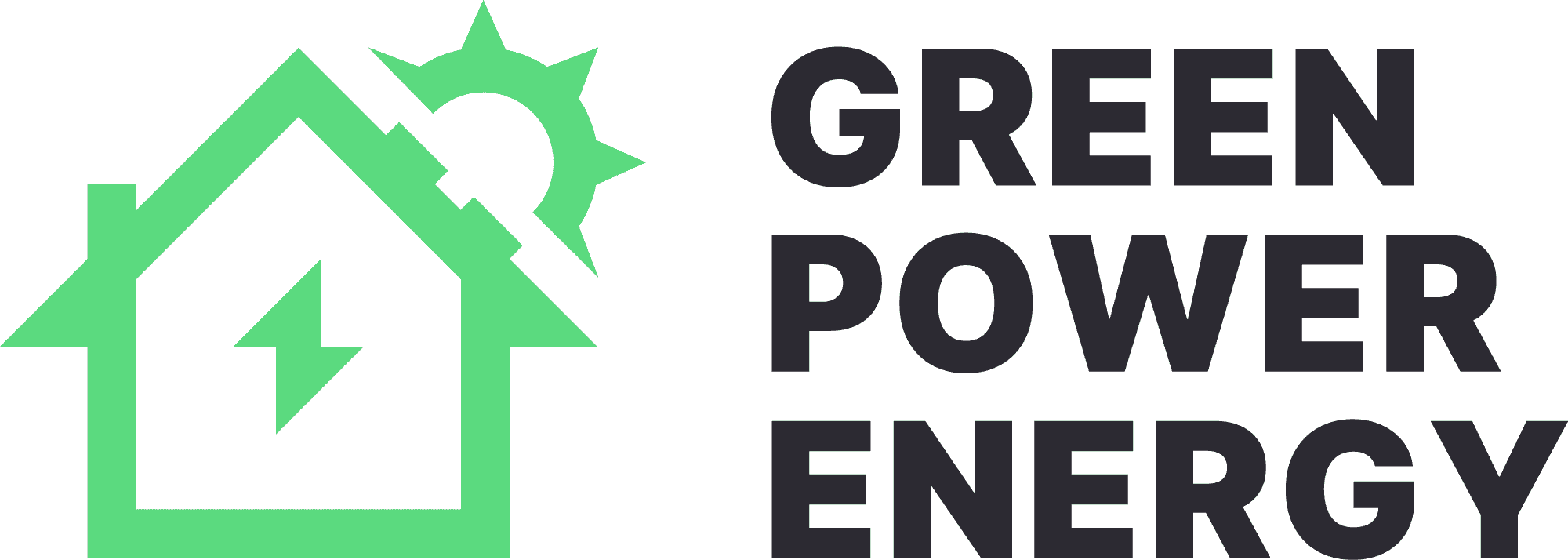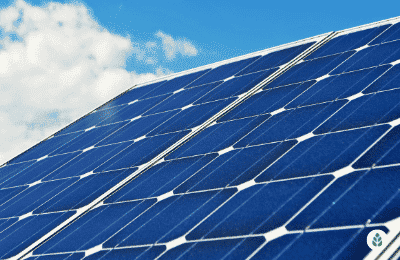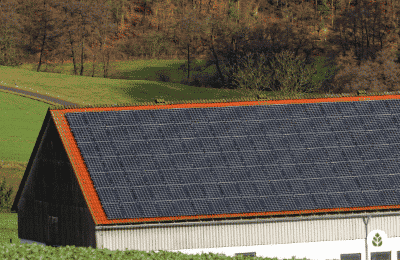
Solar Panel Cost in Rhode Island (2024 Local Savings Guide)
Here’s a quick look at the estimated cost of solar in Rhode Island:
- Average Cost Per Watt: $3.68
- Cost of Average System: $15,456*
- Cost of Energy Without Solar: $68,151
- Payback Period: 8 Years**
- Lifetime Savings of Going Solar: $46,071
*Average system size is calculated using data from the Energy Information Administration. This price is after tax credit.
**Payback period is calculated assuming the system is purchased in cash.
Each product and or company featured here has been independently selected by the writer. You can learn more about our review methodology here. If you make a purchase using the links included, we may earn commission.
Rhode Island is well known for its beautiful bays, but this coastal state gets plenty of overcast and rain. As such, many Rhode Island residents are questioning if solar power systems are right for their homes. But, the state actually gets plenty of sunshine, on average 202 sunny days per year. This means that solar energy systems can be a fantastic investment and a path to energy independence for Rhode Islanders’ seeking to reduce their electricity bills.
This guide provides all the details you will need for the cost of solar panel installation in Rhode Island. We also provide information about federal, state and local incentives for the addition of a renewable energy system to your Rhode Island home.
Keep in mind that the price for a clean energy solar solution for your Rhode Island home may look considerably different than these estimates. If you’re interested in getting a free, accurate quote from a pre-vetted solar installer in Rhode Island, check out our guide on the top five solar installers in the state.

Green Power Energy

Regional Service
Average cost
Pros
- Educational, no-pressure sales approach
- Outstanding customer service
- Multitude of products and services
Cons
- Relatively young company

Blue Raven Solar
Pros
- Industry-leading in-house financing
- Competitive pricing
- Excellent reputation
Cons
- Doesn't offer solar batteries (coming 2022)

Trinity Solar

Regional Service
Average cost
Pros
- Many financing options
- Family-owned and -operated
- Makes charitable contributions
- Relatively short workmanship warranty
Cons
- Limited service area
Cost of Solar Panels in Rhode Island

According to the U.S. Energy Information Administration (EIA), the average electricity rate in Rhode Island is 25.95 cents per kilowatt-hour. This is far higher than the U.S. national average of 16.79 cents per kilowatt-hour.
Most Rhode Island homeowners opt for a 6-kilowatt residential solar energy system, although your system may look different depending on your particular needs. Besides the size (in kilowatts), several other factors affect the solar system and installation cost.
Solar Panel System Installation Cost in Rhode Island
The below table shows the average costs Rhode Islanders pay for solar energy systems before and after getting the federal solar tax credit. As you might notice, the size (kilowatts) directly correlates with its cost. The size of the solar system is critical to your cost, and getting a smaller one will reduce your expense. But, if you get a system that is too small, you may not meet your energy needs.
For example, let’s say you want to completely eliminate your energy bills. In that case, you will need to get an adequately sized solar system that meets or surpasses your home’s energy usage.
| Size of Solar Panel System | Rhode Island Solar Panel Cost | Cost After Federal Tax Credit |
| 3 kW | $11,040 | $7,728 |
| 4 kW | $14,720 | $10,304 |
| 5 kW | $18,400 | $12,880 |
| 6 kW | $22,080 | $15,456 |
| 7 kW | $25,760 | $18,032 |
| 8 kW | $29,440 | $20,608 |
| 9 kW | $33,120 | $23,184 |
See also: Calculate the costs and savings you can get from installing solar panels
What Determines the Cost of Solar Panels in Rhode Island?
The cost of solar panel systems in Rhode Island can vary widely — by up to $15,000. The price you’ll pay for your solar equipment and installation depends on a few important cost factors, which we’ll explain below.
These can help you estimate where in the typical range ($7,728 to $23,184) your system price will fall.
Solar Equipment
Solar systems are expensive, primarily due to the high cost of the equipment. So it stands to reason that the equipment you choose to install will have the most significant impact on the price you’ll pay.
The panel efficiency a homeowner needs can determine what panel brands are suitable, and the efficiency required depends mostly on the availability of sunlight. Rhode Islanders experience around 202 sunny days per year, which is just under the national average.
RI’s ample sun means solar panels with mid-range efficiency ratings are adequate and more costly high-efficiency panels aren’t required — meaning overall costs will be lower for a system in Rhode Island than in states where minimal sunlight demands high-efficiency panels.
However, Rhode Island homeowners experience their fair share of extreme weather, including hurricanes and tropical storms. These events increase the risk of power outages, so many residents install solar batteries along with their panels.
Batteries are add-on products that store energy for your home to use in the event of a blackout, but they can add thousands of dollars to your total system cost.
Solar Financing in Rhode Island
The method you choose for financing your solar panels will affect your overall system cost.
Cash purchase is the most cost-effective way to buy solar panels, although you’ll be on the hook for a large up-front payment. Solar loans are a more popular and convenient option, but financing fees and interest payments will add to your total cost.
Other options — like solar leases and power purchase agreements (PPAs) — often end up costing even more and you don’t end up owning the system.
Solar Installation Company
Every solar installer in Rhode Island has its own unique pricing structure for equipment and labor, which means the same system from two different companies can come in at different costs. In many cases differences can be minor, but the type of equipment an installer provides can mean cost variations in the thousands.
You can see how pricing differences work by looking at the two best solar installers in Rhode Island: Green Power Energy and SunPower.
Green Power installs equipment from brands like Tesla and Panasonic. While these brands are high quality, they are priced significantly lower on a per-watt basis than the Maxeon panels that SunPower installs.
Going with SunPower will likely lead to a system total that’s thousands of dollars higher, although you also get better efficiency and a more appealing warranty by choosing Maxeon panels and SunPower as your installer.
Additional Considerations and Costs in Rhode Island
The above-described factors will be the most influential when it comes to your system price, but there are some other considerations you’ll want to take into account as well. We’ll discuss these briefly below.
- Permits: Solar system installation in Rhode Island requires a building permit. Your solar installer should handle the permitting process for you, but you’ll be responsible for the permit fee and providing access to your property for any inspections that are required.
- Licenses: Rhode Island requires that all solar installers be licensed as electrical contractors. All reputable installers will have this license, but it doesn’t hurt to ask for proof of license before committing to services.
- Warranties: Warranties are crucial where your solar system is concerned, as they protect your investment and help ensure that your system produces energy as it’s meant to. Opting for the best warranties covering equipment, installation and panel efficiency that fit into your budget is your best option.
- HOAs: Rhode Island is one of the few states that don’t have all-inclusive solar rights laws. Homeowners’ associations can prevent you from installing solar panels in Little Rhody, so you should check with yours before signing any solar service contracts.
- Environmental zoning: Rhode Island’s zoning laws shouldn’t give you any issues with installing rooftop solar panels. However, ground-mounted solar panels might be more complicated depending on your municipality.
Watch Below: Learn What To Know Before Going Solar in Rhode Island
Rhode Island Solar Incentives
Rhode Island residents have access to a few financial incentives that help mitigate the overall cost of your new solar energy system. Rhode Island residents have several incentives available from the federal solar tax credit to net metering policies and sales tax exemptions.
Federal Solar Tax Credit For Rhode Island Homeowners

However, there are a few requirements to qualify for the tax credit. Firstly, you must purchase your solar energy system outright. You can do so in one of two ways: a solar loan or cash purchase. If you opt for a solar lease, you cannot use the ITC.
In addition, you must generate enough income to make the tax credit meaningful.
In 2022, the Biden administration raised the tax credit back up to 30% for solar installations through 2032. As it currently stands, the credit is set to drop to 26% in 2033 and 22% in 2034 before expiring in 2035.
Net Metering Policies in Rhode Island
Net metering programs in Rhode Island are fairly standard compared to other states. These policies allow you to trim down your utility bill even when your system isn’t producing the amount of energy you need.
While the policies are fairly standard, they are beneficial for homeowners with systems that produce an excess of electricity. The utility company pays you back at the “avoided cost rate,” which sits slightly lower than full retail value.
Local Solar Rebates in Rhode Island
Rhode Island residents have access to a few exemptions and state incentives that help cut costs. The sales and use tax exemption can shave off a considerable amount from the final total. Considering sales tax in Rhode Island sits at seven percent, this can be a considerable cost.
In addition, solar panels have a property tax exemption. So, when you pay property tax for your home, you don’t need to worry about additional taxes due to your new solar energy system.
The Rhode Island Renewable Energy Fund (REF), part of the Renewable Energy Growth Program, is an excellent local incentive for solar customers. Customers are eligible to receive up to $5,000 in rebates for qualifying individuals.
The Best Solar Panel Brands Available in Rhode Island
As we mentioned above, the brand of solar panels you install can have a significant impact on your system price. Understanding which panels will fit into your budget can sometimes help narrow down your search for an installer, as each company offers only certain brands.
The table below includes relative pricing for some of the top solar panel brands in Rhode Island.
| Solar Panel Brand | Average Cost Per Watt ($-$$$$$) |
| LG Solar | $$$ |
| Canadian Solar | $$$ |
| JA Solar | $$ |
| Mission Solar | $$ |
| Panasonic | $$ |
| Q Cells | $$ |
| REC | $$$ |
| Silfab | $$$ |
| SunPower | $$$$$ |
| Tesla | $$ |
| Trina Solar | $$$ |
Ready to see what a solar system designed for your home will cost? Select one of our top providers below, and we’ll connect you with a reputable installer that can provide you with a free, no-obligation quote.
Read More About Going Solar
- What Are the Best Solar Companies in Rhode Island?
- Are Solar Panels Worth It in Rhode Island?
- How Much Can You Save With Solar Incentives in Rhode Island?
The cost information presented in this article is derived from a comprehensive analysis, incorporating data from multiple industry sources. The average cost per watt per state was calculated based on figures from Consumer Affairs, Energy Sage, and Berkeley Lab’s Electricity Markets & Policy Department. Additionally, monthly energy consumption and the average monthly cost of electricity were sourced from the U.S. Energy Information Administration, ensuring a well-rounded and accurate representation of the information presented.
FAQs: Solar Panel Cost Rhode Island
At EcoWatch, we receive thousands of solar power questions every month. If you have specific questions that aren’t answered here, reach out to our team of solar experts at solar@ecowatch.com.
Several factors impact the final cost of solar panels for your Rhode Island home. For example, the size of your home, its orientation and roof configuration, and your energy consumption all play a role in the correct system size.
For instance, let’s say a 6-kilowatt system is a perfect size for your home. In Rhode Island, a solar panel system of this size costs about $15,456 on average (after the 30% federal tax credit). Depending on the appropriate size for your home, the final cost may be more or less.
Generally, it’s better to buy your solar panels for your Rhode Island home, if possible. If you buy your system outright, you can take advantage of several benefits accompanying the ownership. For instance, you can take advantage of the federal solar tax credit, as well as local financial incentives.
In addition, your home has a boosted real estate value. When you choose a solar lease, you don’t get to use the ITC, and your home doesn’t gain any additional value from the panels since you don’t own them.
With that said, buying your solar energy system outright with a cash purchase isn’t feasible for all homeowners. In that case, financing with a solar loan is an excellent alternative. While you will accrue interest over the entirety of the repayment period, you can still take advantage of the ITC, and your home gains value.
Solar panels aren’t free in Rhode Island. If you see an advertisement for free solar panels, it’s most likely a marketing tactic trying to get you to sign a lease or power purchase agreement (PPA).
Solar leases aren’t the best option for Rhode Island homeowners, so it’s imperative to complete thorough research on the company to ensure you know what you’re getting yourself into. With that said, solar leases may be an okay option for some residents. For example, residents in a rental who don’t want to commit to a long-term solar energy system may appreciate the option of a solar lease.
Yes. There’s certainly a possibility of eliminating your energy bills for your Rhode Island home with solar panels. However, the likelihood of eliminating them entirely hinges on your situation. For example, if your home is heavily shaded or you don’t have a large enough solar energy system, you might not generate enough power to totally eliminate your energy bills.
With that said, you may be able to eliminate your electricity bills entirely with the right size system. But to get energy 24/7, your home still has to be connected to the national grid.
Related articles
Top Solar Installers in Rhode Island Cities
Comparing authorized solar partners
-
- Educational, no-pressure sales approach
- Outstanding customer service
- Multitude of products and services
- Relatively young company
A+Outstanding Regional Installer
Having trouble deciding? Click below and use our process to receive multiple quotes instead:

 233k
233k  41k
41k  Subscribe
Subscribe 





